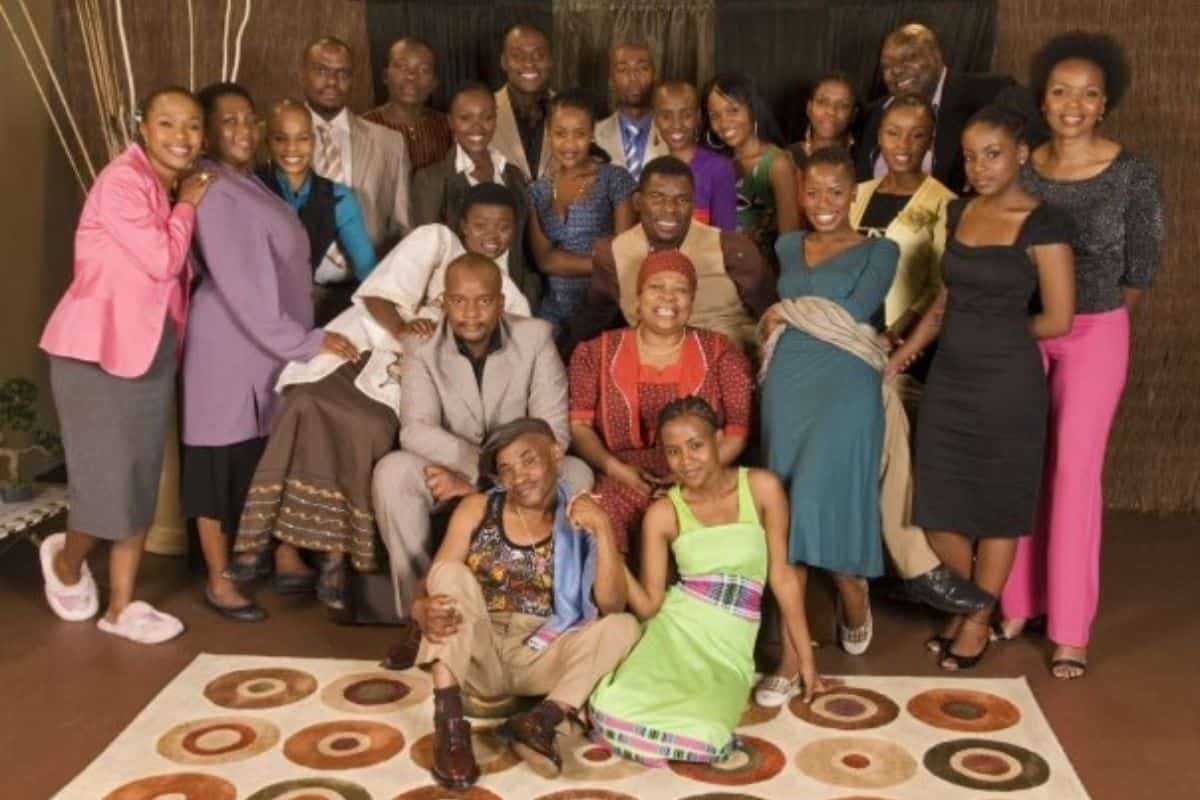Muvhango will air for the last time tonight after nearly 30 years on South African television.

Years before ‘representation’ was a buzzword used by woke Gen Zs, Muvhango made its debut on South African screens, ironically, in the year Gen Zs were born.
Because of the unspoken hierarchy of South African languages, which places Nguni languages like isiZulu and isiXhosa right at the top and leaves languages spoken in the northernmost part of South Africa like Xitsonga and Tshivenḓa at the bottom, one does not get to experience a variety of cultures on television.
ALSO READ: ‘Muvhango’ axed by SABC 2 less than a year after relaunch
Muvhnago brought diversity
The late 1980s to mid-1990s South African television was dominated by shows such as S’Gudi Snaysi, Kwakhala Nyonini, Lesilo Rula, Emzini Wezinsizwa and the nation-building Suburban Bliss.
There was an evident dearth of representation; one could argue that there still is.
When Muvhango made its debut in 1997 on SABC 2, there was nothing like it.
It was not necessarily the storylines, as South Africans had witnessed the drama of a man with two wives on screen or conflicts within families.
It was in how Muvhango shone the spotlight on Tshivenḓa as a language and the Venḓa people in ways that had never been experienced on South African television. The show changed South African TV forever.
“Now suddenly you walk in Northern Cape and you hear somebody saying ‘Ndaa’, [hello] you know,” said long-time actress on Muvhango, Maumela Mahuwa, who portrays the character of Susan Mukwevho in an interview with the SABC.
[WATCH] After nearly three decades, Tshivenḓa telenovela Muvhango airs its final episode on Tuesday, 12 August at 9 PM on SABC2. Maumela Mahuwa, Innocentia Manchidi, and Dr. Xolisa Tshongolo reflect on its cultural impact. pic.twitter.com/2adSIXKbfq
— SABC News (@SABCNews) August 10, 2025
ALSO READ: It’s a wrap: A look inside Muvhango’s final day of filming
‘Muvhango gave an opportunity to an ignored language’
Tonight, 28 years after that debut and nearly 5000 episodes broadcast, Muvhango will be aired for the last time.
The SABC confirmed that it would cancel the show earlier this year due to low viewership.
“Muvhango gave an opportunity to an ignored language that has become one of the most celebrated languages in South Africa now,” said creator and executive producer of the show, Duma Ndlovu, in a statement.
The show quickly became a cultural cornerstone of local television through unforgettable characters such as Doris ‘you must never’ Mokena (portrayed by Joyce Skefu), Vho-Makhadzi (played by Candy Moloi), Doobsie (played by Lindiwe Chibi), and many others.
Speaking about the show’s cancellation, Ndlovu said it had been a privilege and an honour to create television moments that placed marginalised languages at their centre.
“Muvhango gave an opportunity to an ignored language that has become one of the most celebrated in South Africa now,” he added.
ALSO READ: Muvhango fires Thandaza and Susan
Muvhango ends
In July, the TV shows wrapped up their production after nearly three decades on air. The soapie shared a behind-the-scenes video on social media, giving fans a glimpse into the cast’s emotional final day on set.
“I am really emotional since it’s the last day. I’m going to miss everybody, including all the departments,” said cast member Wavhudi Lidzhegu.
Lidzhegu joined Muvhango nearly a decade ago at just 17, playing the role of Vhutshilo Mukwevho.
In June last year, Muvhango was relaunched, and Ndlovu said he and his team had listened to what the viewers wanted for the new version of the TV show.
“The growth and development of Muvhango have always been us responding to what the viewers were saying,” Ndlovu said at the time.
“What you’re going to be seeing this season is probably the most dramatic change and growth that you’ve ever seen. Our viewers demanded we go fancier, younger, more fashionista, and bolder.”
“They wanted us to continue telling stories. They didn’t want us to lose the DNA of the show, but they wanted us to jazz things up. So, we have a new logo, we have a new title sequence, and we think you’re going to love it,” he said.
Contrary to Ndlovu’s prediction, the viewers didn’t gravitate toward the ‘jazzed-up’ Muvhango.
By the end of 2024, the soapie had attracted just more than 900 000 viewers —a massive drop from the millions of onlookers it had attracted in its prime.
The SABC’s CEO, Nomsa Chabeli, confirmed that a replacement for Muvhango is ready to take its place. The new telenovela is titled Pimville.






